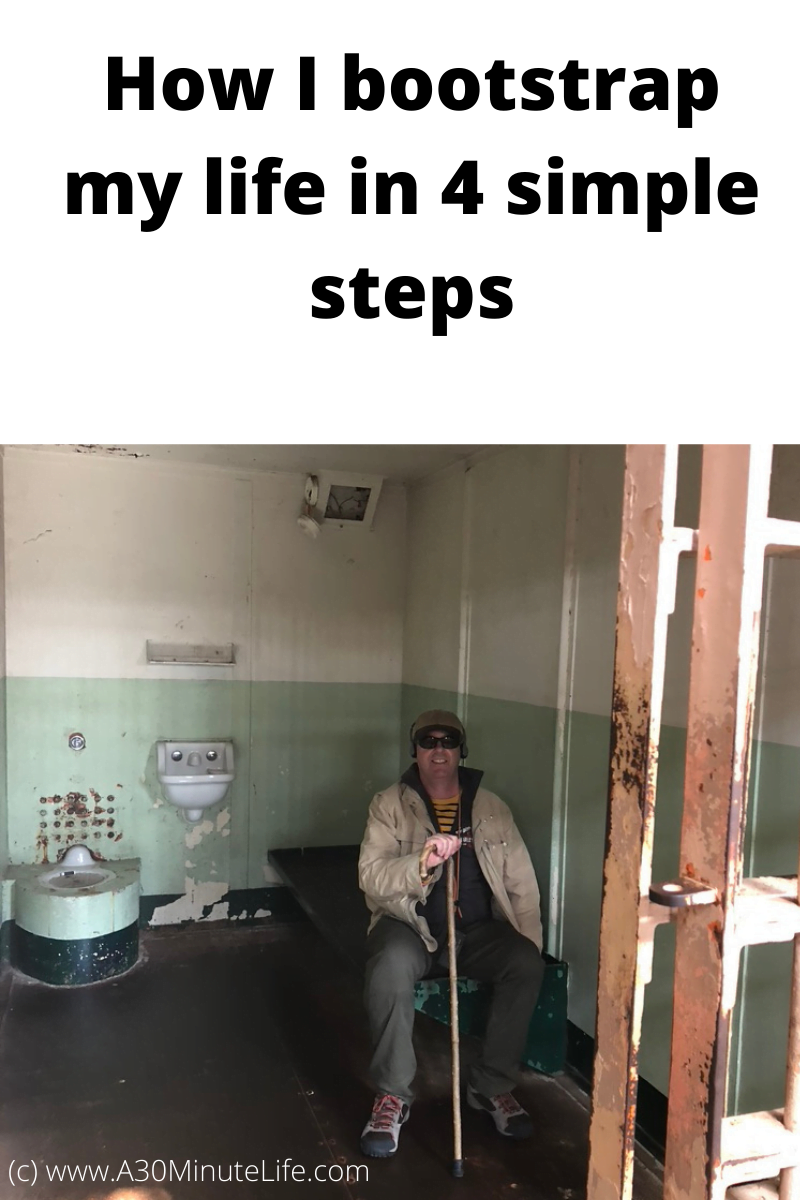When you have a down day, or even several down days, it can seem difficult to pull yourself out of the negativity. As I am not a doctor, or a mental health expert, I can only let you know what works for me. You should always consult an expert. With this disclaimer done I can share what I have learned.
Step 1 – It is ok to feel bad sometimes.
We are under constant bombardment from television and social media to be in a constant happy mood. Alway excited by life. This is unreasonable and unobtainable. We need to have light and dark in our lives. I have often said:
The dark days make the bright days, brighter.
Robert Joyce
We need to keep this in mind. There have been days, or even weeks when I have felt down. Thinking the world is against me, and wondering if there is any point in my life. These were hard days, and they would be made even more difficult if I felt guilt for feeling depressed. That would feed a negative spiral. There will come a point when you realise you are feeling down. Step 2 will help you know when this is happening.
Step 2 – Write it down
These negative thoughts, when they are in your head, are very difficult to catch hold of, seeming like trying to hold onto a fog. You can see it, even feel it, but you cannot touch it, to grab and throw away. While they are in your head they are very hard to deal with.
This is when writing how you feel down on paper is so powerful. As I journal every day it is easier for me now, but at the start it took time. I would write down everything happening, or not happening, in my life. Then I would try and find out why I feel like this. Breaking it down, into ever smaller pieces. Being specific.
Once you have done this you will realise you have three possible causes for feeling bad. They are:
- Things you can control: These can be things like your emotions, fitness, weight and activity. These are thing you can change by taking positive action. These are things you do each day.
- Things outside of your control: There are many thing we have little or no power to change, like the weather, the economy or taxes. I would also include here things which happened in the past, or could happen in the future.
- Something else: If, when you write down you problems, and you cannot find the cause, then you should get professional help, ask your doctor. I see a psychologist regularly and have found this to be a great help.
Step 3 – Create a plan
Now you know what is triggering your bad feelings. You should already start feeling a bit better about yourself. This is because you have taken some positive action, to help yourself. It feels good. When you look at the three categories listed above, you can do something about the first and third. The second is outside of your control, so it is of no value to dwell on these, at least in the short term. If you need to see a specialist, then you can start your search. You can start with a friend, a therapist or someone you would trust (like a religious leader).
There will be things which are in your control, and you need to create a plan to do something about these. Create a goal. If you use the SMART (Specific, Measurable, Actionable, Realistic and Timely) (You can learn more here) goal setting method to achieve these you will find success. My suggestion is to have a series of goals, short, medium and long-term (these long term goals could solve your Things outside of your control problems). You should include some very easy wins in your short term goals. These could be having a shower, brushing your teeth, or making your bed. Setting up a feeling of success.
Step 4 – Take Action
This is the final step, the bootstrapping phase. Now you have your SMART goals you have a clear path of action. This is building on the success of the previous steps. You are winning and taking positive steps to improving your mental health. The mind is a wonderful thing, as when you create a positive framework, and have built in achievable goals, you will further improve your mindset. This is fantastic.
A final thought
These are simple steps to take to help improve your life. However, over time you might let these actions slip. This is normal, and I have done this myself. However, I restart the plan again. Going through each of the phases to pull myself out of the negative spiral. To give you an idea of how it works, this blog is a result of one phase, and my podcast is the result of another. I would even say my training by EUPATI to be a patient expert is another. From small, simple steps, I have achieved things I would have said are impossible on my dark days. These successes are much more valuable, as they grew from negative days.
I wish you every success!!



